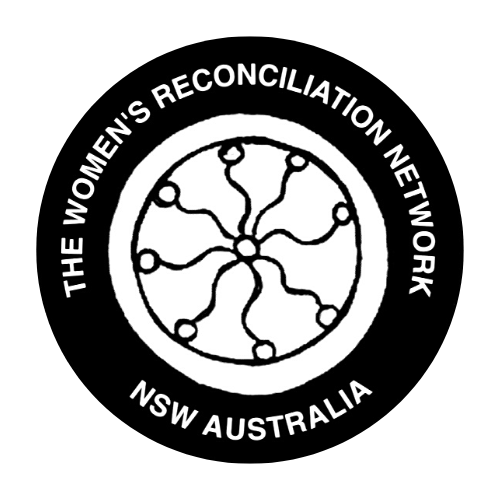What led you to become involved with WRN?
Since I first became a teacher in 1969, and before that, I was committed to better understanding the situation of the Aboriginal people of Australia. in those early days, my husband and I worked in Redfern with the Inner City Parish and South Sydney Community Aid, with the Indigenous and multicultural community. In schools, we made links with Indigenous students, we invited Aboriginal elders into the schools to enable students, staff and families to gain awareness and understanding. Early on I attended Jack Beetson’s course for non-Indigenous people at Tranby. We raised awareness through a wide range of activities, including a mock Invasion Day, with the development of a play, Discovery OR Invasion in 1988, we built a 60,000 year timeline, we wrote letters to the PM about the lack of apology. We had Aboriginal Artists work with the children on murals and a Sea of Hands wall, we held community forums – we strove to embed Indigenous education, and for it to be integral to the school community culture.
In the 70’s – 80’s my husband and I worked in India, Kenya and Indonesia, and the situation of Australia’s Indigenous peoples was brought into even sharper focus. So, on our return to Sydney, I became aware of a group of committed women friends responding to the need to raise awareness, through launching the Womens’ Reconciliation Network. This network held many grassroots events and activities, including regular Yarnings, Spirit events and forums, developed various publications, resources to educate and raise awareness. Because of my focus in schools, my participation in WRN was minimal for a number of years. Once I retired from the school system, WRN naturally became the place where I could continue to support the education, awareness raising and advocacy work, walking with the First Nations People of Australia.
In your view, what are the biggest challenges Australia is still facing in regard to reconciliation?
Australia faces the huge challenge of facing the truth of its history, and recognising its First Nations people. Although there have been several Aboriginal Education Policies introduced into the Education system, over my career, serious Indigenous education is still only improving slowly, and not consistent. While First Nations people are more represented in the media, and society, the mainstream Australian population is largely unaware of the real situation. The challenge is to put education of the non-Indigenous population front and centre – at the grassroots – in schools, organisations and communities, at local, state and federal levels, so we can face the TRUTH, and therefore be able to HEAR the VOICE and WISDOM of the First Nations peoples. The VOICE of our land, our Mother Earth, and its waterways is desperate to be heard, for the sake of ALL Australians. The greatest challenge is to HEAR the VOICE of the First nations people.
3. What are your aspirations for Australia’s future in terms of the relationship between Australia’s First Nations people and Australia’s settler communities?
My aspiration is for Australia to be a just and fair society, at peace, walking together, listening to, and learning from each other, recognising the gifts and traditions and cultural wisdom we all bring and to share this across this land. This includes cultural, ideological and structural change at all levels of our society, in order to deal with greed and injustice. Only in this way will settler Australians and First Nation Australians be able to truly work and walk together in peace, for the sake of the future of this country and be able to join and contribute to an inclusive global community, which values all peoples!
Robyn Hutchinson April, 2021
